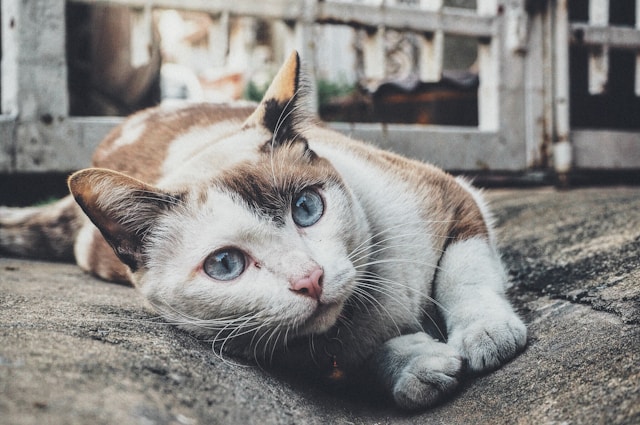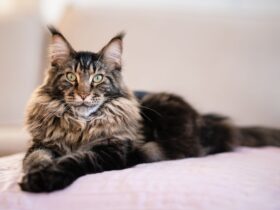The Maine Coon cat, often referred to as the “gentle giant” of the feline world, is one of the largest and most beloved cat breeds. Known for their impressive size, friendly demeanor, and luxurious fur, Maine Coons have captured the hearts of many cat enthusiasts. This comprehensive guide delves into the history, characteristics, care needs, and health considerations of Maine Coon cats.
History of the Maine Coon
The Maine Coon cat’s origins are shrouded in mystery and legend. As one of the oldest natural breeds in North America, the Maine Coon is believed to have arrived in the U.S. with early sailors from Europe. According to popular lore, Maine Coons are descendants of cats that sailed with Marie Antoinette to America, but this theory is not supported by historical evidence.
More plausibly, Maine Coons are thought to be a mix of domestic cats brought to America by seafarers and local long-haired cats. They were first recognized in the late 19th century, and their large size, tufted ears, and bushy tails made them particularly well-suited to the harsh climates of New England.
Physical Characteristics
Size and Build
Maine Coons are one of the largest domesticated cat breeds. Males typically weigh between 13 to 18 pounds, while females are slightly smaller, ranging from 8 to 12 pounds. Their long, muscular bodies and sturdy legs contribute to their impressive size. Maine Coons have a rectangular body shape, which gives them a distinctive, robust appearance.
Fur and Coat
One of the most striking features of the Maine Coon is their dense, water-repellent fur. Their coat is semi-long, featuring a soft undercoat and a glossy, protective topcoat. Maine Coons come in a wide variety of colors and patterns, including tabby, solid, and bicolor. Their fur requires regular grooming to prevent matting and tangles.
Head and Facial Features
Maine Coons have a distinctive head shape, characterized by a broad, slightly squared muzzle and high cheekbones. Their large, tufted ears are one of their most recognizable traits, giving them an alert and expressive appearance. Their eyes are large, almond-shaped, and can be green, gold, or copper.
Tail
The Maine Coon’s tail is long, bushy, and plume-like, which provides balance and insulation against cold weather. This characteristic tail is often described as resembling a feather duster.
Personality and Temperament
Maine Coons are renowned for their friendly and sociable nature. They are often referred to as “gentle giants” due to their large size and affectionate disposition. Maine Coons are known for their playful and curious personalities, making them excellent companions for families, including those with children and other pets.
Social and Affectionate
Maine Coons are highly social cats that enjoy the company of their human families. They are known to follow their owners around the house and engage in interactive play. Despite their size, they are generally gentle and good-natured, displaying a tolerant attitude towards children and other pets.
Intelligent and Trainable
Maine Coons are intelligent and curious, often exhibiting problem-solving skills and a willingness to learn. They can be trained to perform tricks or use a litter box with ease. Their intelligence also means they need mental stimulation to keep them engaged.
Vocalization
While Maine Coons are not as vocal as Siamese cats, they do have a distinctive chirping or trilling sound that they use to communicate with their owners. This vocalization is often described as soft and pleasant.
Care and Maintenance
Grooming
Maintaining a Maine Coon’s luxurious coat requires regular grooming. Their long fur can become tangled and matted if not properly cared for. Weekly brushing is recommended to remove loose hairs and prevent mats. Pay special attention to the undercoat, as it is prone to tangling.
Diet
A balanced diet is crucial for maintaining the health and well-being of Maine Coons. Due to their large size, they may require more food than smaller breeds, but it’s important to provide high-quality cat food to prevent obesity. Consult with your veterinarian to determine the appropriate portion sizes and nutritional needs for your Maine Coon.
Exercise
Despite their large size, Maine Coons are active and playful cats that benefit from regular exercise. Providing toys and interactive playtime helps keep them physically and mentally stimulated. Scratching posts and climbing structures can also help satisfy their natural instincts.
Health Considerations
Maine Coons are generally healthy cats, but they are prone to certain genetic conditions. Regular veterinary check-ups and a healthy diet can help manage and prevent these issues.
Hypertrophic Cardiomyopathy (HCM)
Hypertrophic Cardiomyopathy is a common heart condition in Maine Coons. It is characterized by the thickening of the heart muscle, which can lead to heart failure. Regular veterinary check-ups and early detection are essential for managing this condition.
Spinal Muscular Atrophy (SMA)
Spinal Muscular Atrophy is a genetic disorder that affects the spinal cord’s motor neurons. It leads to muscle wasting and weakness. While SMA does not cause pain or affect the cat’s quality of life significantly, it is important to be aware of this condition.
Choosing a Maine Coon
If you’re considering adding a Maine Coon to your family, it’s essential to find a reputable breeder or adoption agency. Ensure that the breeder follows ethical practices and provides health clearances for genetic conditions. Alternatively, consider adopting from a rescue organization, where many Maine Coons are looking for loving homes.
Conclusion
The Maine Coon cat breed is a wonderful choice for families and individuals looking for a friendly, intelligent, and affectionate companion. Their impressive size, luxurious coat, and delightful personality make them a standout among cat breeds. By understanding their history, characteristics, and care needs, you can provide the best environment for your Maine Coon, ensuring a happy and healthy life for this remarkable feline friend.











Leave a Reply